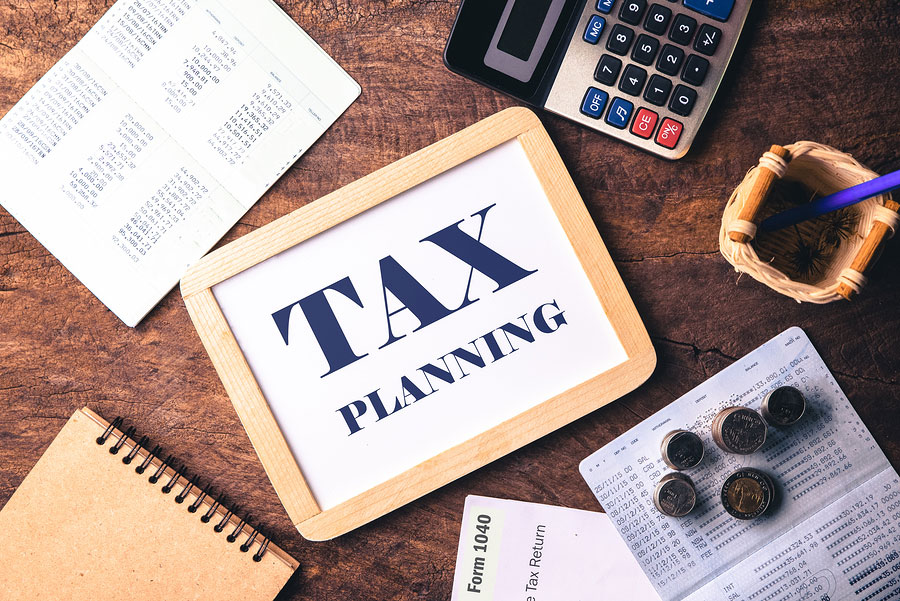TAX YEAR END – 30 JUNE 2020
 With the end of the financial year just two weeks away, we’ve prepared some tips for our personal clients to make sure they maximise their deductions for their tax returns before 30 June 2020.
With the end of the financial year just two weeks away, we’ve prepared some tips for our personal clients to make sure they maximise their deductions for their tax returns before 30 June 2020.
There will be another separate series for our business clients coming soon, to assist them to plan before 30 June 2020, to get their claims in place.
We will provide three articles over three days to help our personal clients to get prepared. They will focus on:
- Superannuation considerations – these are extremely important to be done no later than 25 June 2020 to make sure that any contributions make it to your fund by 30 June 2020
- Tax Deductions for your personal tax return
- Financial considerations for your personal tax return
Here is Article 1 on Superannuation
TAX STRATEGIES PART 1: Using super to its advantage – Boost before 30 June 2020
A lot of people make the constant mistake of comparing superannuation funds by their investment returns and fees.
Superannuation is a tax-effective investment vehicle that you can use to provide for your retirement. The performance of your superannuation will depend on the investment options that you select, the level of life insurance cover that you choose, and then the choice of administration platforms.
With the end of the financial year close to being upon us, here are our Top 5 superannuation strategies that could help you to save tax and boost your overall financial position in the lead up to the end of the financial year, and moving into next year.
| TAX ITEM | EXPLANATION | AAG TEAM |
| REVIEW YOUR SUPERANNUATION CONTRIBUTIONS | As an employee, you may want to sacrifice your pre-tax salary or bonus into super rather than receive it as cash, so you will:
With the new changes in superannuation deductibility, you no longer need to ask your employer to salary sacrifice additional superannuation. You can now make a personal contribution to super directly. Last year the Government announced that individuals with superannuation account balances of $500,000 or less can make “catch-up” superannuation contributions using their unused Concessional Contributions Caps (for up to five years) from 1 July 2018. This will provide you the opportunity to make “catch-up” superannuation contributions into your super against past years’ unused contributions, into the future. The Concessional Contributions Cap for the 2020 financial year is $25,000. If you are making personal contributions and would like to claim a tax deduction, remember to give your superannuation fund a Notice of Intent to Claim a tax Deduction and that you receive an acknowledgment letter from your superfund. This is to ensure that when the ATO matches its records to your superannuation fund, you are not denied the deduction. |
INVESTMENTS and CLIENT SERVICES |
| BRING FORWARD THE CAP | The superannuation caps are $25,000 per annum as tax deductible contributions (also called the Concessional Contribution Cap), and $100,000 per year for non-tax-deductible contributions (you can also bring forward 3 years of contributions in one year, subject to conditions).
If you exceed either of the caps, you are charged an additional tax of 30% plus Medicare levy, of the amount of the excess contribution. Once you exceed your $25,000 Contribution Cap (which includes the superannuation contributions made by your employer), you are able to seek the contribution to be paid to you by your employer as extra salary, and you pay the same amount of tax, but you are then able to use those funds to pay down your home loan, or use the funds for other purposes. |
CLIENT SERVICES |
| TOP UP YOUR SUPER FROM AFTER-TAX AMOUNTS | You are allowed to put into superannuation an amount of after-tax funds (known as Non-Concessional Contributions) of up to $100,000 per annum (and more if you use the ‘bring forward’ rule). To assist in boosting your retirement savings, you can consider a number of strategies in this regard.
If you have an investment in your own name, you may want to cash-out the investment and use the money to make a personal after-tax super contribution, so you can:
If you have received an inheritance or a windfall, you can consider putting those funds into superannuation and the earnings on those funds will be taxed at 15%, rather than at your normal marginal tax rate. |
CLIENT SERVICES |
| MAKE A DOWNSIZER CONTRIBUTION | Individuals aged 65 years or older can make Downsizer Contributions of up to $300,000 into their superannuation using the proceeds from the sale of their main residence where sale contracts are exchanged on or after 1 July 2018 (and superannuation providers can accept such contributions).
This is a way to get more superannuation into your Fund. |
CLIENT SERVICES |
| GET A SUPER TOP-UP FROM THE GOVERNMENT FOR YOU OR YOUR SPOUSE | If you earn less than $38,564 for the tax year ending 30 June 2020, you may want to make a personal after-tax super contribution, and you may qualify for a Government co-contribution of up to $500.
You could make this contribution for your spouse as well, to top-up their super, if their income is below $38,564, and you can also claim the co-contribution for your spouse. Alternatively, if you have a spouse who earns less than $37,000 for the year to 30 June 2020 (subject to other conditions), you may want to make an after-tax super contribution on their behalf, and you can receive a tax offset of up to $540 (the rebate is 18% of the amount of the contribution, with the tax offset capped at $540). |
CLIENT SERVICES |
Read AAG Tax Planning Strategies for Individuals for 30 June 2020 – Part 2
Please email us at consulting@austasiagroup.com if you have any queries.
We will be in touch again in the new financial year to discuss your specific requirements for your tax return and to help you maximise your claims.
We look forward to assisting you with your tax returns.




